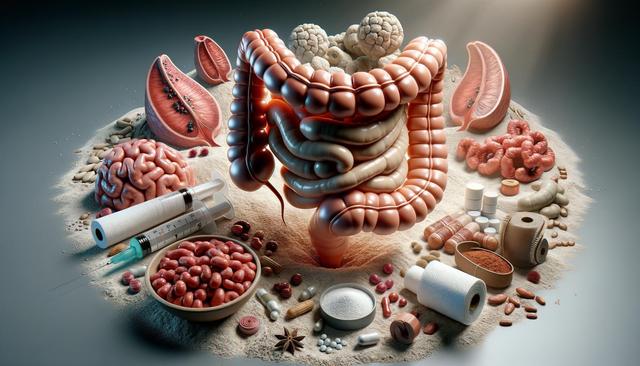Recognizing the Warning Signs Early
One of the most effective ways to improve outcomes in colon cancer is by recognizing the signs early. While symptoms may be subtle or mistaken for other gastrointestinal issues, there are certain red flags that should not be ignored. The top 3 signs of colon cancer you should never ignore include persistent changes in bowel habits, unexplained weight loss, and blood in the stool. These symptoms may not always indicate cancer, but they warrant prompt medical evaluation, especially if they persist over time.
In adults over 50, the early symptoms of colon cancer in adults over 50 can be particularly misleading. Fatigue, abdominal discomfort, and a feeling that the bowel doesn’t empty completely are common but often overlooked. It’s essential to differentiate these from routine digestive issues. If these signs appear alongside iron-deficiency anemia or consistent bloating, they may indicate something more serious. Early medical consultation can lead to earlier diagnosis and more treatment options.
How Colon Cancer Develops Over Time
Understanding how colon cancer develops silently over time helps highlight the importance of regular screenings. Colon cancer typically begins as small, benign growths called polyps on the inner lining of the colon or rectum. Over the years, some of these polyps may develop into malignant tumors. Since this transformation is gradual and often symptom-free initially, many individuals are unaware of any issue until the cancer has progressed.
This silent development is why screening is so crucial. Without symptoms, individuals may delay medical visits, allowing the disease to advance. Risk factors such as age, family history, and inflammatory bowel diseases can increase susceptibility. Recognizing these risks and discussing them with a healthcare provider can lead to proactive monitoring and early intervention.
Nutritional Support for Colon Health
Diet plays a significant role in maintaining colon health and potentially reducing cancer risk. Adopting nutritional changes that support colon health doesn’t require drastic measures. Instead, small adjustments can make a meaningful difference. High-fiber foods, such as vegetables, fruits, legumes, and whole grains, help keep the colon clean and functioning efficiently.
Incorporating the following into your diet may support colon health:
- Leafy greens and cruciferous vegetables (e.g., broccoli, cabbage)
- Foods rich in omega-3 fatty acids like flaxseeds and walnuts
- Limiting red meat and processed foods
- Staying hydrated with water instead of sugary drinks
These changes, along with regular physical activity, may contribute to a healthier digestive tract and reduce inflammation that could lead to polyps or cancer over time.
Daily Habits That Support Prevention
There are several lifestyle habits that reduce colon cancer risk that individuals can adopt regardless of age. These habits not only support colon health but also benefit overall wellness. Regular exercise, maintaining a healthy weight, and avoiding tobacco use are all linked to lower cancer risk. Alcohol consumption should also be moderated, as excessive intake has been associated with increased colorectal cancer rates.
Other beneficial habits include:
- Quitting smoking or avoiding it altogether
- Engaging in at least 30 minutes of physical activity most days
- Getting adequate sleep and managing stress levels
- Attending regular medical checkups and discussing any new symptoms
By making these habits part of your daily routine, you create a foundation for long-term health and lower your chances of developing serious conditions, including colon cancer.
Screening: Your First Line of Defense
One of the most effective tools in preventing or detecting colon cancer early is regular screening. Medical guidelines outline recommended colon screening intervals by age to help identify polyps or early cancers before symptoms develop. For average-risk adults, screening often begins at age 45 or 50 and continues at intervals based on the type of test used and individual risk factors.
Common screening methods include:
- Colonoscopy (every 10 years for those at average risk)
- Stool-based tests like FIT or FOBT (annually or every few years)
- CT colonography (every 5 years)
Those with a family history of colorectal cancer or genetic syndromes may need to begin screening earlier and more frequently. Discussing personal and family medical history with a healthcare provider is key to determining the right schedule. Staying informed about screening options and following through with recommended tests can significantly improve early detection rates and treatment outcomes.
Conclusion: Taking Charge of Your Colon Health
Colon cancer is often preventable and treatable when caught early, but that requires awareness, action, and consistent health practices. By understanding the top 3 signs of colon cancer you should never ignore, recognizing early symptoms of colon cancer in adults over 50, learning how colon cancer develops silently over time, embracing nutritional changes that support colon health, and implementing lifestyle habits that reduce colon cancer risk, individuals can take meaningful steps toward prevention. Most importantly, adhering to recommended colon screening intervals by age ensures that any changes are detected early, when treatment is most effective. Prioritizing these strategies empowers adults—particularly those over 50—to make informed decisions about their health and well-being.




Leave a Reply